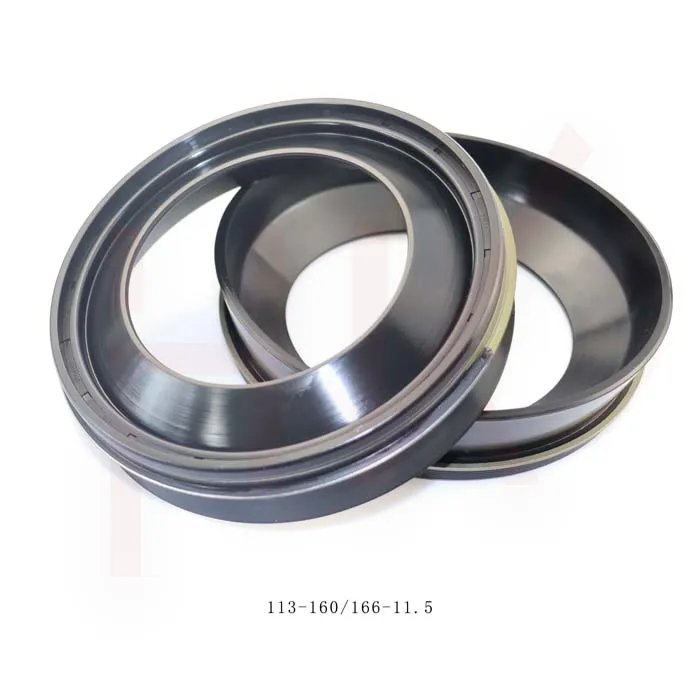Nov . 29, 2024 14:55 Back to list
High-Quality Hub and Axle Seals for Improved Performance and Durability
Understanding Hub Oil Seals and Axle Seals Importance and Maintenance
Hub oil seals and axle seals are vital components in the automotive and machinery world, playing an essential role in ensuring the efficient operation of vehicles and equipment. These seals serve to keep lubricants contained within the hub and axle systems, preventing contamination from dust, dirt, and moisture while avoiding costly leaks that can lead to serious mechanical failures. Understanding how these seals function and the importance of their maintenance can save vehicle owners considerable time and money in the long run.
What are Hub Oil Seals and Axle Seals?
Hub oil seals are specifically designed to fit within the wheel hub assembly of a vehicle. They effectively seal the area where the axle shaft meets the wheel hub, preventing oil from escaping and dirt and water from entering. This is especially crucial in preventing wear on the bearings and ensuring the longevity of the entire wheel assembly.
Axle seals, on the other hand, are designed to prevent lubricant leaks from the axle housing. They perform a similar function to hub seals but are located in different areas of the vehicle. These seals are primarily found at the ends of the axle shafts where they enter the differential and rear axle housing. Their primary role is to maintain a lubricant barrier that keeps the axle gears functioning smoothly while protecting them from external contaminants.
Why are Hub Oil Seals and Axle Seals Important?
The significance of hub oil seals and axle seals cannot be overstated. First and foremost, they play a critical role in maintaining the lubrication necessary for the smooth operation of bearings and gears. Adequate lubrication reduces friction, thereby minimizing wear and extending the lifespan of the components involved.
Secondly, oil seals prevent contaminants from entering the lubrication system. Dirt, moisture, and debris can cause severe damage to gears, bearings, and other sensitive parts, leading to costly repairs or even complete failures. Effective sealing helps maintain the integrity of the lubrication system and ensures that it remains efficient under various operating conditions.
Lastly, leaking oil can compromise the vehicle’s performance and safety. A loss of lubrication can lead to overheating, potentially resulting in catastrophic engine failures. Regular inspection of hub oil seals and axle seals helps to maintain the vehicle's operational safety and reliability.
hub oil seals axle seals

Maintenance Tips for Hub Oil Seals and Axle Seals
Maintaining hub oil seals and axle seals is essential for prolonging the life of the vehicle's drivetrain components. Here are some tips for vehicle owners
1. Regular Inspections Frequent checks of the seals for signs of wear, damage, or leaking can help catch issues early before they lead to more significant problems. Look for dampness or wetness around the seals, which can indicate a leak.
2. Keep Components Clean When performing maintenance such as wheel bearing repacking or axle servicing, ensuring the area around the seals is clean and free from debris is crucial. Contaminated seals can deteriorate quickly, leading to premature failure.
3. Replace When Necessary If a seal is found to be leaking or damaged, it’s vital to replace it immediately. Running with a compromised seal can lead to extensive damage to internal components and more expensive repairs.
4. Use Quality Parts When replacing hub oil seals or axle seals, always opt for high-quality, OEM (Original Equipment Manufacturer) parts. Using substandard seals can lead to premature failure and increased maintenance costs.
5. Monitor Fluid Levels Keep an eye on fluid levels in the differential and wheel hubs. A drop in fluid levels can signal a leak due to a failing seal, indicating it’s time to inspect and possibly replace the seal.
Conclusion
Hub oil seals and axle seals play crucial roles in the performance and safety of vehicles. Regular inspection and maintenance of these seals can prevent leaks, protect the vehicle's components, and ultimately save vehicle owners from hefty repair bills. By understanding their functioning and implementing maintenance best practices, vehicle owners can ensure that their machines remain in top condition for years to come.
-
Reliable Oil Seal Wheel Hub Solutions for Industrial & Automotive Use
NewsNov.17,2025
-
Durable Front Hub Oil Solutions for Industry – HKAiSeal
NewsNov.17,2025
-
Wholesale Hydraulic Pump Motor Seal Kit A4VSO250 | In Stock
NewsNov.17,2025
-
Pump Seal Kits: Essential Components for Industrial Reliability
NewsNov.17,2025
-
TCV Oil Seal - Double-Lip, Spring-Loaded, High Temp & Wear
NewsNov.17,2025
-
Hydraulic Seal Kits: Reliable Solutions for Industrial Equipment
NewsNov.17,2025
-
Combined oil seal 659214 12001903B, fits 119990, NBR OEM
NewsNov.17,2025
Products categories
















